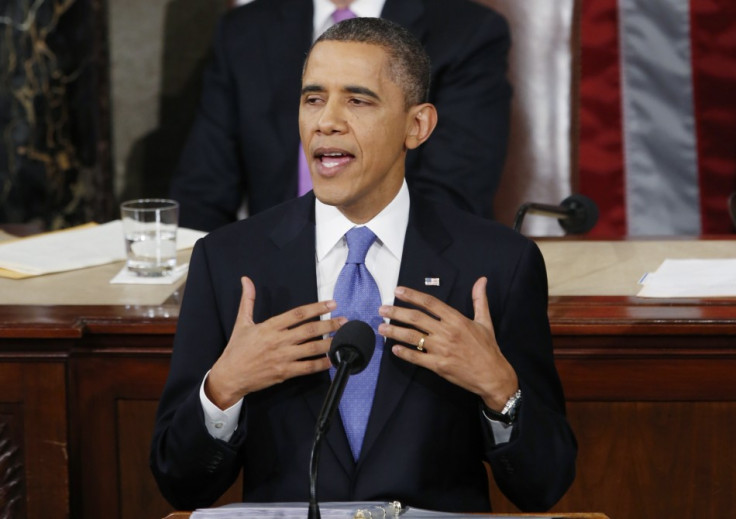Anonymous Backfires: Threat to Disrupt Obama's State of the Union Address Fails
Anonymous planned to disrupt the online broadcast of President Obama State of the Union address but failed completely.

The loose collection of hackivists known as Anonymous has made the news for various reasons over the past two years. From high-profile attacks on major corporations to revelations about leading members working for the FBI and working in conjunction with activists on the ground to spread the word on the latest uprising.
What we haven't heard that much of however, is the group's failures.
Last night on Twitter, ahead of President Barack Obama's State of the Union address, accounts affiliated with the online movement were busy spreading the word about Anonymous' latest operation.
The plan? To disrupt the President's speech by blocking access to all webcasts and live streams of the address.
"Tonight, the President of the United States will appear before a joint session of Congress to deliver the State of the Union Address and tomorrow he plans to sign an executive order for cyber security as the House Intelligence committee reintroduces the defeated CISPA act which turns private companies into government informants," they said in a video statement ahead of the speech.
"We reject the State of the Union. We reject the authority of the President to sign arbitrary orders and bring irresponsible and damaging controls to the Internet. The President of the United States of America, and the Joint Session of Congress will face an Army tonight."
The result? The White House live stream worked flawlessly and without a hitch throughout Obama's speech, even as he spoke about the executive order he was signing which aimed at protecting critical infrastructure by allowing the government to share information with private companies about real and potential cyber threats.
Anonymous had previously given a "vote of no confidence" to these measures, but its attempts to disrupt people viewing Obama signing the order were fruitless.
Last Resort
The action was part of an Anonymous campaign called Operation Last Resort which began in the wake of Aaron Swartz's suicide last month. The group defaced an MIT website as well as a US government website to announce the start of campaign and followed-up by hacking into an internal website at the Federal Reserve.
The official Operation Last Resort Twitter account apologised for the failure adding that it would not have mattered anyway as Obama had "won this round" by sneaking in and signing the Cyber Intelligence Sharing and Protection Act (CISPA) hours ahead of the address.
The controversial CIPSA legislation, which was defeated in the Senate last year, is expected to be reintroduced in some form today, Wednesday, 13 February.
The Twitter account went on to claim Anonymous had won the first three rounds (MIT, USSC.gov and the Federal Reserve) "so we give round 4 to the sneaky Gov."
It also warned: "We are in this for the full 12 rounds so do not fret. We can't wait for round 5 with Level 2 of the Game to hold plenty more Lulz."
IBTimes UK spoke to one faction within Anonymous to find out more about Operation Last Resort and the people behind it, but the people we spoke to didn't know who was behind the operation or where it was based.
This is indicative of the Anonymous collective, which is made up of multiple small groups or cells which simply call themselves Anonymous in order to affiliate themselves with the movement. While some claim this leads to fragmentation, an Anonymous spokesperson has told us previously:
"These cells don't lead to fragmentation of Anonymous rather they lead to specialisation. It is very difficult for any group of activists to keep an eye on the freedom of the Internet and human rights abuses in every country of the world. So, by having these unique national cells, who are part of the local culture and know the language - they can police their own territories and sound the alarm to the global collective if there is a dire need."
© Copyright IBTimes 2025. All rights reserved.






















